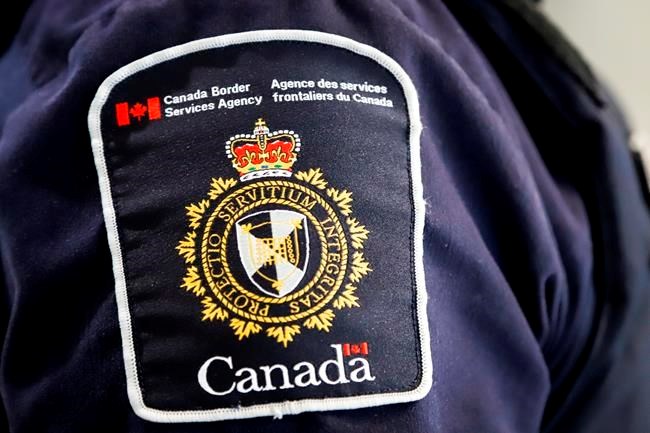Canada is bringing in tougher new measures to put the brakes on any U.S. citizens planning a holiday in B.C. while motoring to Alaska.
This comes as RCMP announce six $1,000 fines for violating Canada’s Quarantine Act. The RCMP’s Shiprider Program patrols Canadian waters to enforce federal laws.
The stricter rules for Americans travelling by road come into effect Friday. They are being imposed to reduce the risk of Americans passing on the COVID-19 virus. Under the new edict, Americans must travel directly between their port of entry in Canada to their arrival destination in Alaska. Travellers won’t be allowed to stop in national parks, leisure sites or take part in tourist activities.
A Canadian-issued “hang tag” identifying that they are in-transit travellers and the date they must leave by has to be displayed on rear view mirrors.
While on the road, the government wants them to pay for fuel at the pump, use drive-through restaurants for meals, wear masks or face coverings, and follow other physical distancing and health protocols.
When Americans are nearing their U.S. destination, they must go to the nearest Canadian port of entry to confirm that they are leaving this country.
Canada announced the new rules Thursday after reports of Americans, supposedly on their way to Alaska, appearing to be on holiday in B.C. and Alberta.
The border closed on March 21.
Since March 31, travellers aiming to head through Canada to Alaska are only allowed in for non-discretionary journeys — such as going to work or returning to their primary residence.
Americans must enter Canada through only five ports of entry. In B.C., they are at Abbotsford-Huntington, Osoyoos and Kingsgate. In Alberta, there is designated port of entry at Coutts, and in Saskatchewan at North Portal. They will be turned away from other crossings.
Once at a port of entry, travellers must satisfy a Canada Border Services Agency officer that they meet requirements for entry into this country.
The government recommends they bring documents to back up their statements. The border services officer makes the final decision on allowing entry.
These rules also apply to travellers leaving Alaska and planning to pass through Canada on their way south to other U.S. states. However, in those cases, entry into Canada is not limited to specific ports of entry.
All in-transit travellers must ensure their hang tag remains on the rear-view mirror throughout the trip. The front of the tag will show that they are travellers in transit and it will also show the date by which they must leave Canada. The back of the tag lists public safety measures they must follow.
Canada said foreign travellers will be allowed a “reasonable period” for travelling. They must follow a direct route from the port of entry to their U.S. destination.
B.C. boaters have been raising the alarm about American boaters arriving in Canadian waters and docking in B.C. ports.
American boat operators are not allowed to come into Canadian waters for non-essential reasons, such as tourism and fishing.
RCMP have issued six violation tickets for failing to comply with Canada’s Quarantine Act, Staff Sgt. Janelle Shoihet, spokesperson for the RCMP E division headquarters, said in a Thursday statement.
She did not have specifics, but the RCMP’s Pacific Shiprider program issued two Quarantine Act fines to operators of U.S.-based vessels this month. The boats did not respect the conditions of gaining entry into Canadian waters, a police statement said.
On July 10, one boater was charged and fined under the federal act. “It was clear the persons on this vessel had misstated their intention to travel to Alaska and had entered Canada for the purposes of tourism.”
A week later, the operator of an American whale watching vessel was fined. That vessel, with its passengers, was returned to U.S. waters.
Failing to comply with the rules is an offence under the Quarantine Act and could lead to up to $750,000 in fines, and/or imprisonment of up to six months.
If a traveller causes a risk of imminent death or serious bodily harm to another person while wilfully or recklessly contravening regulations, they could be liable for up to $1 million in fines, and/or imprisonment of up to three years. Anyone with questions can call 1-800-461-9999.



